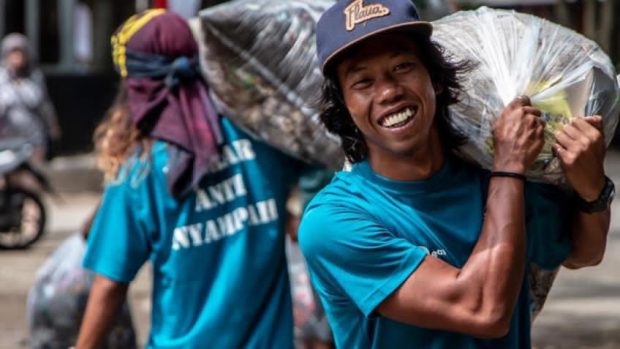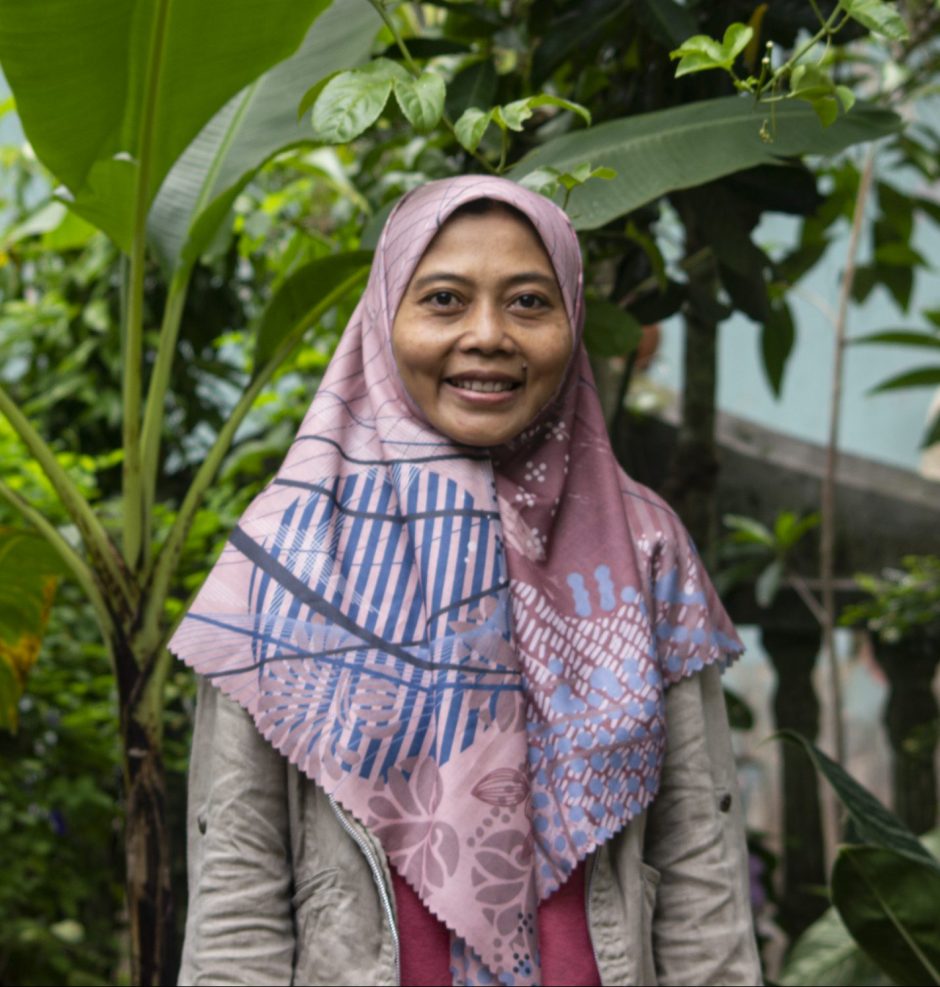Recap on our waste management achievements in 2021
In 2021, CLEAR community reached out to 6 villages to share the village waste management skills developed at its community centre at Batukaras. Six village Waste Banks were established and, between them, they recycled 5,255.8kg of waste. This included 1,749kg plastic that would have been burnt or eventually have found its way into the rivers and the ocean.
5,255.8kg is equivalent to:
- 1 x African elephant, or
- 11,699 footballs, or
- 3 x Tesla Model 3’s
2022: A year of waste bank expansion
In 2022 we plan to consolidate these 6 Waste Banks, develop at least 6 more, and investigate how to spread the success throughout Indonesia by making these financially self-sustainable, improving our ability to train and transfer knowledge to communities and exploring new ways to partner with local organisations to increase their use of waste banks.

Below we describe our five key aims for 2022, we provide an outline of our Waste Bank training and our Targets that we will work to achieve throughout 2022.
Aim 1: Increase the number of Waste Banks
We plan to set up at least 6 new Waste Banks across a number of villages in Java. Depending on local resources, they will process paper, cardboard, cans, iron, copper, aluminium, several types of plastic, and cooking oil. Our aim will be to process over 6 tonnes of waste including 1.5 tonnes of plastic.
Aim 2: Help existing Waste Banks become efficient, well managed and financially sustainable.
To be sustainable Waste Banks need to be financially independent and members rewarded for their work. Where new income streams are identified we will support the waste banks to identify what is appropriate to them and provide support to target these opportunities. We will support the established waste banks by acting as the conduit and hub for knowledge transfer, learning and sharing of best practice between villages. We will monitor each of the Waste Banks to develop a clear understanding of their environmental impact and will develop efficient reporting systems to support their ability to communicate their impact to funders and supporters most effectively.
Aim 3. Increasing the use of Waste Banks
We will work with local organisations to explore and plan how they can tap into the Waste Bank network. Our aim will be to add significant volume to the amount of waste processed and help develop stronger local networks.
Aim 4. Widening the offering made by Waste Banks
We will seek wherever possible to expand the range of recycling activities provided by the Waste Banks. For example several Waste Banks are already testing refill stations to further reduce plastic use and this could also generate revenue for the Waste Banks. Offering recycling services to local schools and businesses is also being investigated.
Aim 5. Developing a strong cohort of volunteers
CLEAR’s UK operations are entirely run by unpaid volunteers and this will continue throughout 2022. We recognise the importance of having a well trained and secure workforce operating within Indonesia. We aim to develop a stable, well-trained and highly-motivated group of community trainers who will be self-employed. To start, two trainers will be employed on 6-month contracts in 2022 and our ambition will be to increase these contracts to 1-year contracts in the medium term.

Opportunities for further Waste Bank expansion and collaboration
There are over 75,000 rural villages in Indonesia lacking waste management infrastructure. While we are focused on expanding our training in the south of West Java we also have the ambition to spread Waste Banks far and wide. To do this we will collaborate with similar organisations in other areas and provinces, to encourage the establishment of new organisations and to investigate the feasibility of distance learning programmes for organisations, groups and villages.
Example of our Waste Bank trainingWorking closely with locally identified Waste Warriors, the communities will learn:
|

CLEAR Community’s Targets
- 100 Waste Warriors identified throughout 10 villages
- At least 6 new village Waste Banks established
- Support to 6 existing waste banks to become self sustaining
- Creation of a total of at least 12 self-managing Waste Banks
- Over 12 tonnes of waste processed, including 3 tonnes of plastic
- Monthly measuring and reporting of weight of waste processed
- Recruitment of at least 2 paid trainers on secure medium/long term contracts
- Expanding community involvement
How you can help reduce the amount of waste entering our environment
To help expand Waste Banks throughout Indonesia and reduce plastic pollution at a local level please make a donation. Even a small regular donation will help us plan a brighter future for us all. You might also be interested in reading about our Waste Warriors programme, our Workout 4 Waste Fundraising campaign and our Plastic-Free February awareness campaign.



